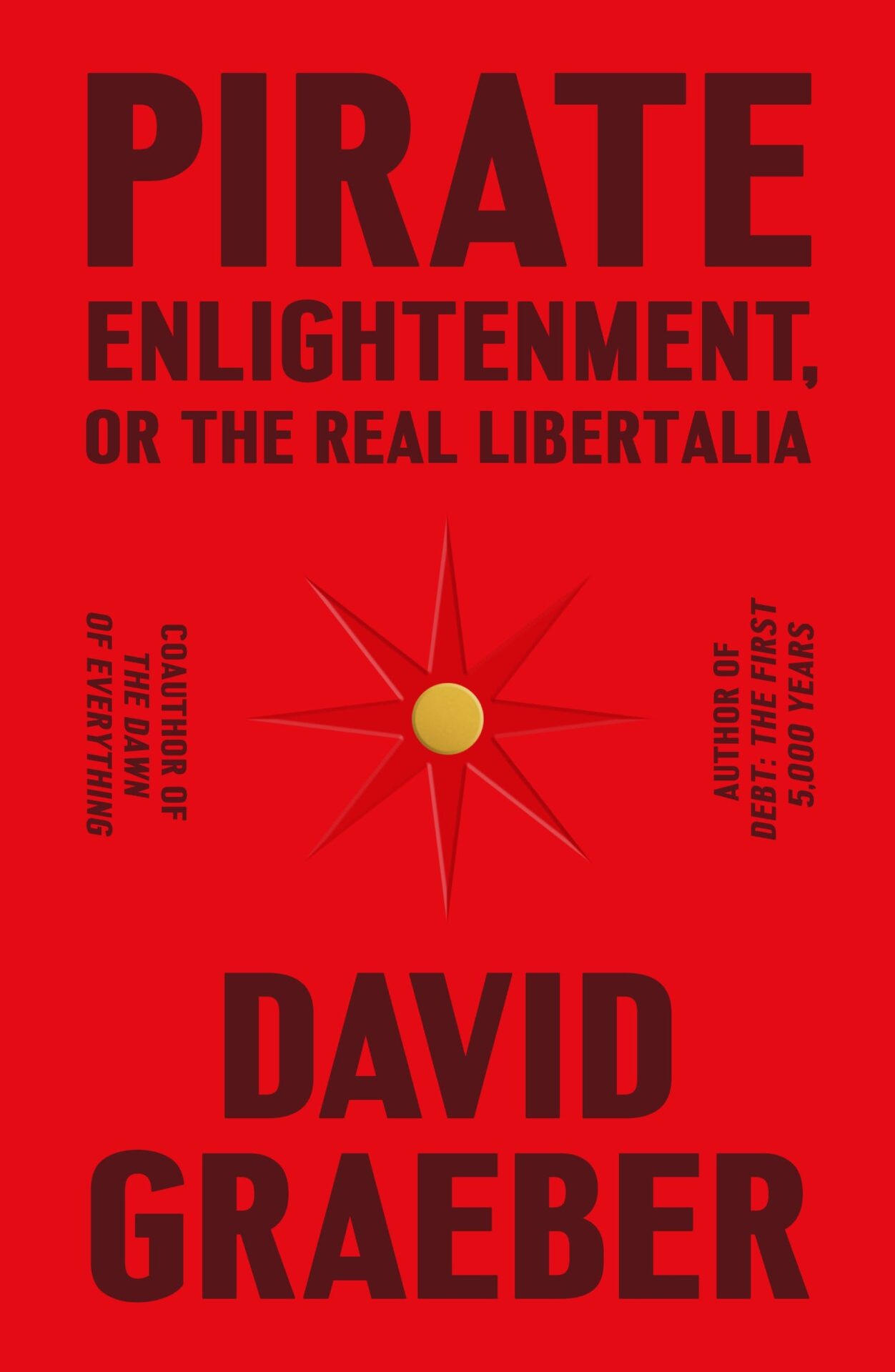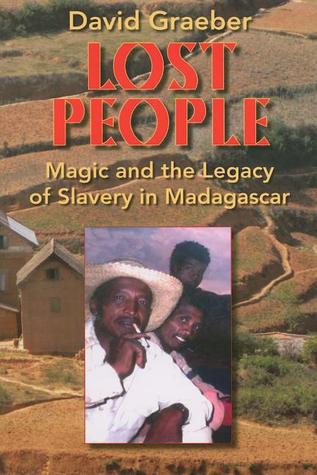Did pirates advance democracy? David Graeber’s last book makes the case
Los Angeles Times
David Graeber’s posthumous book, “Pirate Enlightenment,” is a reminder of the joys of reading the popular anthropologist.

In a pirate stronghold on the lush eastern shore of Madagascar, the child of a native-born sorceress and a roving buccaneer unites warring kingdoms, fends off a tyrant from the mountains and secures a long-lasting peace. In the hands of most historians and storytellers, this would be a straightforward tale of adventure and heroism in an exotic locale.
Not for David Graeber. In his book, “Pirate Enlightenment, or the Real Libertalia,” the point isn’t the swashbuckling — though some swashes do indeed buckle — but the real story of antiauthoritarianism, gendered economics and direct democracy behind a legendary 18th-century pirate province. The bleeding edge of the Enlightenment’s democratic revolution, in this telling, wasn’t to be found in a Parisian guillotine but rather in the fragile consensus forged over long meetings on a distant island.
This is the second posthumous book by the anthropologist and anarchist social critic, who died suddenly at age 59 in 2020. In many ways it can be read as an addendum to 2021’s “The Dawn of Everything,” which Graeber co-wrote with archaeologist David Wengrow as a door stopper argument against the pat story of civilization inexorably progressing from hunter-gatherer bands to hierarchical complex city-states, without any room for human ingenuity or experimentation.
The point of “Dawn” was not to argue for a new teleology or advance a single idea, in the style of Jared Diamond or Yuval Noah Harari, of how humans can live because of what came before. Rather, the book was a compendium of destabilizing alternatives, a dissertation on the fundamental constructedness of things, leading to the conclusion that what makes us human is the ability to imagine, talk and decide what we want to do together.
Graeber wielded history, anthropology and archaeology like an ax, hacking holes in the walls built up around us to show the reader vistas of other possible worlds. His earlier book, “Debt: The First 5000 Years,” which launched him from academia and leftist organizing to popular nonfiction shelves, synthesized millennia of economic history with a similar aim: to undermine the standard account of money, homo economicus. In “Bull— Jobs,” his 2018 book based on a viral essay, he probed the question of why so many of us seem to go to work only to do meaningless tasks we find detestable. Graeber plainly described his goal in that book’s introduction: “I would like this book to be an arrow aimed at the heart of our very civilization.”
“Pirate Enlightenment” began its life as a part of “On Kings,” an academic anthropology book Graeber published in 2017 based on his dissertation research in Madagascar conducted in the early ‘90s. When he looked at his fieldwork again, he found the subject of the Zana-Malata, a distinct ethnic group descended from pirates, and the Betsimisaraka, the larger group whose name translates to “the many unsundered,” too interesting to limit to a chapter.
After the breakout success of “Dawn,” readers will likely come to this book as a kind of expansion pack to the earlier work — and in some ways, it fits the mold. The pith of the argument is that the Zana-Malata son of a pirate, Tom Ratsimilaho, has been incorrectly portrayed as a European civilizer of the Madagascar coast. Instead, Graeber writes, this historical figure mixed pirate and Malagasy forms of democracy to create a period of peace without slavery, coercion, or (much) hierarchy.
It’s hard to avoid the sense that Graeber might have produced a different book had he been alive to see it published. In his most popular works, Graeber developed a freewheeling, conversational style. He zeroed in on individual stories and specific personalities at length, but took care (for the most part) to ensure the reader knew why we were delving into grain distribution rituals of Sumerian city-states or the contrasting work cultures of neighboring indigenous Northern Californian tribes. No matter how closely he invited us to peer at the trees, we still had a sense of Graeber’s forest.
Critics of “Debt” and “Dawn” found fault with that chatty style, which sometimes elided factual errors or made rhetorical leaps that wouldn’t pass muster in academic peer review. Graeber occasionally pointed out a blank space in the historical record, which the prevailing wisdom had filled with ideology and myth, only to fill in that space with his own tenuous counterstory.
But boy was that story compelling. Graeber had mastered the art of pulling new research out of his home field and contextualizing it for the lay reader. If it took 100 pages to summarize decades of intellectual debate and discovery about hunter-gatherer societies to make a point, then that’s how long it was going to take — and the conclusion was all the more satisfying for the legwork it took to get there.
“Pirate Enlightenment” could have used more of that expansive style and less minute detail arguing against the established scholarship. It is interesting, for example, that the descendants of pirates came to replace an earlier, possibly Jewish caste of ritual cattle slaughterers, but it’s difficult to connect that with the thesis of tracing the early Enlightenment to the western Indian Ocean. You can see the forest through the trees if you squint, but the book hews much closer to its origins as an academic text.
In the spirit of Graeber’s utopian thinking, it’s easy to imagine a slightly different book as a fun stinger to Graeber’s popular career — one that fits the Madagascar material into the tales of pirates as proletarian rebels against imperial capital, building outlaw republics on Caribbean isles. Those are stories that other scholars and popular writers have told, but I would have loved to read Graeber’s kaleidoscopic, ornery, optimistic take on the full span of skull-and-crossbones history.
Flashes of that larger story do shine through, and the book advances Graeber’s mission: to destabilize our idea of what’s possible and show that humans can, and often do, create egalitarian worlds built on points of consensus instead of the sharp end of a cutlass.


